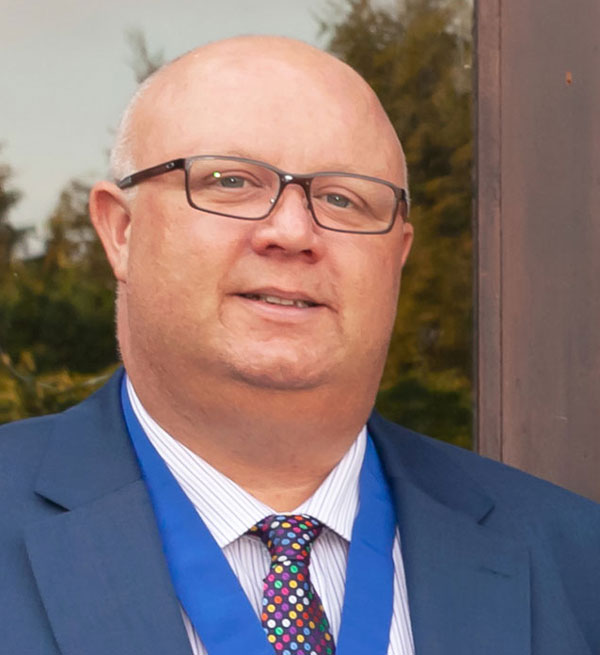
Caroline Jepson takes over as CILEX president

Personal injury specialist Caroline Jepson became the 58th CILEX president in July, taking over from criminal defence lawyer Craig Tickner.
One of Caroline’s key priorities is to gain a greater understanding of the barriers faced by CILEX members, to ensure they have the opportunity to progress in the profession - on a par with solicitors – and to instil the ambition and confidence in them to do so.
Speaking at the CILEX AGM on 22 July, Caroline said: “I consider myself to be a good example of what CILEX does well which is allowing people from diverse backgrounds who wouldn’t otherwise be able to become lawyers to have access to the legal profession. I went to a state school and didn’t go to university; neither did my parents.
“The CILEX route into law generates a determination and passion that serves clients and the overall profession well. The drive to succeed is common amongst our members and together, we can make a powerful contribution to the quality and effectiveness of the legal system.
Caroline’s legal career began when she joined Irwin Mitchell as a typist in the personal injury department. She soon began studying with CILEX and qualified as a CILEX Fellow, specialising in catastrophic injury claims. After 17 years in practice, she became a brain and spinal injury case manager before becoming a governance manager for a rehabilitation company.
She is now operations director for a chain of gyms whilst also working part-time as a consultant case manager, specialising in brain injury claims.
Read Caroline’s column for more.
CILEX appoints director of education
CILEX has appointed David Cameron as director of education to spearhead its education strategy.

David will assume responsibility for all of CILEX’s education offerings, including CPD, the CILEX Law School, apprenticeships and the CPQ, as well as influencing public education policy on behalf of CILEX.
Bringing over 20 years’ education experience to the role, David was previously assistant director of professional development at the Royal College of General Practitioners (RCGP) and has also worked at the Department for Education, heading up the curriculum support programmes for teachers of English, science and computing, and at the Institute of Physics, where he was education programmes manager.
David said: “I have seen how high-quality education can be the catalyst for transformative change. Professional development is not an event or a course – it is a state of mind which defines who we are as professionals and where we want to go.
“My goal is to create a cohesive CILEX education offering, from training and qualification to continuing professional development, that will empower our members throughout all stages of their careers, whether that is in developing specialist knowledge and skills, advocacy, achieving practice rights or entering the judiciary.
“This will support the wider goal of CILEX to raise the profile and recognition of CILEX Lawyers and paralegals across the sector.”
CILEX recognises ‘exceptional’ members with Companion membership

The CILEX board has established CILEX Companion membership to recognise exceptional CILEX practitioners with a proven track record, either within their own organisations or in their contribution to CILEX.
“This is the highest accolade and level of membership awarded by CILEX,” explained CILEX Companions Chair Matthew Foster.
“CILEX Companion status is awarded to those who are leaders within the CILEX community. They will act as ambassadors and role models, inspiring the next generation of lawyers and providing mentoring support to future professional board members and those seeking presidential office.
“They will also act as a source of reference to the CILEX boards and executive on matters relating to member engagement.”
The first CILEX Companions, announced at this year’s AGM, are:
- Ian Ashley-Smith – first appointed CILEX judge;
- Keith Barrett – hon. vice-president who served 12 years on the CILEX council;
- Frances Edwards – the first female president from Wales;
- Stephen Gowland – past president, Legal Services Board member and tribunal judge;
- Millicent Grant – past president, first Black woman to lead a legal professional body and an Honorary QC;
- Nick Hanning – past president, CILEx Regulation board member and deputy district judge;
- Juliet Harvey – the first CILEX Lawyer to chair Resolution;
- Chloe Hubbert – first female CILEX deputy district judge;
- Elizabeth Johnson – first female CILEX judge; and
- Phillip Sherwood – past president who led governance restructure transition
CILEx Regulation pilots new practice rights
top-up assessment route
CILEx Regulation has begun working with the University of Law to pilot a new top-up assessment route for CILEX Fellows looking to gain additional practice rights and become CILEX Lawyers.
The new route will enable experienced Fellows to obtain the right to practise one or more reserved areas of activity by completing an assessment of competence. On successful completion, they will be able to make a short application to CILEx Regulation for authorisation and will also be awarded 20 credits towards a qualification at Level 7.
For Fellows changing their area of practice or for those whose experience is more limited, a study course will be required, available through the University of Law. This will ensure that those applicants are appropriately prepared for the assessment.
CILEx Regulation awarded the contract to the University of Law following a competitive tender. The alternative route has been developed based on feedback relating to the existing portfolio-based application route.
Janine Griffiths-Baker, chief executive of CILEx Regulation, said it would be working with the university “to design, develop, and implement a rigorous assessment process which complements the existing route to authorisation for additional practice rights”.
The pilot phase will take place with a limited number of applicants before CILEx Regulation make an application to the Legal Services Board (LSB) to finalise the rules of the scheme.
The final application to the LSB is expected to be made in early 2022, after which (subject to LSB approval) the route will be open to all CILEX Fellows with over five years of qualifying employment.
Linda Ford, chief executive of CILEX, welcomed the opportunity for existing CILEX Fellows to obtain their additional practice rights.
She said: “CILEX hopes the pilot will allow CILEx Regulation to ensure that the route is accessible to all Fellows with the requisite experience, recognising the variety of practice environments our members work in, including those in part time or non-traditional legal roles.”
For further information about gaining practice rights, visit the CILEX FAQs page
CILEX responds to Law Commission’s law reform programme
CILEX’s policy team has responded to a consultation on the Law Commission’s 14th programme for law reform, which sought to gather views on law reform under the themes of emerging technology, leaving the EU, legal resilience and simplification.
CILEX detailed the importance of modernising legal services in line with emerging technology and the impact this could have in terms of driving down costs and improving access to justice.
On leaving the EU, CILEX highlighted the “opportunity for greater recognition, both of UK lawyers and the legal profession, and of the models and legal infrastructure that the domestic legal services market advocates in the interests of greater rule of law”.
The response explained the anomaly that sees CILEX Lawyers recognised as lawyers by the government for domestic purposes but not for international purposes, highlighting the “renewed ability to ensure that the framework of lawyer recognition recognises all legal professionals that the UK has to offer”.
CILEX reiterated its long-held concerns about backlogs in the criminal justice system and also urged the Law Commission to consider the need to remove the legislative barriers faced by CILEX Lawyers, such as the bar on certifying copies of powers of attorney and the requirement to cross-qualify as a Crown prosecutor.
CILEX also called for improvements to the efficiency and simplicity of the law and the legal services market, focusing in particular on conveyancing, the need for leasehold reform and an opening up of the market in a way that “embeds greater efficiency and assurance of quality between stakeholders to the process”.
The submission also pushed for consideration of an activity-based regulatory model to provide “the assurance needed to maintain quality of standard and service, whilst also providing flexibility and proportionality to maintain a friendly environment for innovation”.
CILEX recommended that the commission examine the additional theme of diversity in the implementation and delivery of laws and legal protections.